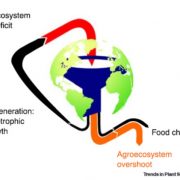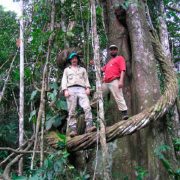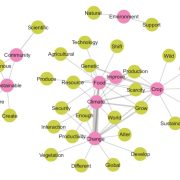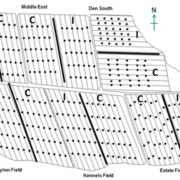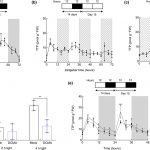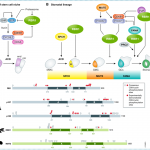Letter. Planting equity: Using what we know to cultivate growth as a plant biology community (Plant Cell)
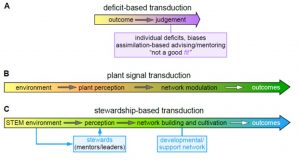 COVID-19 has derailed everyone’s lives and plans; 2020 is truly an “annus horribilis.” Yet clearly this pandemic has hit some harder than others. Note for example the greatly disproportionate mortality in Black and Indigenous populations, which surely contributed to the outpouring of outrage following the murders of George Floyd, Breonna Taylor and others. For many, this year has been a tipping point in terms of recognizing the impact of systemic racism and how it permeates and influences everything, even science. In this Letter, Beronda Montgomery addresses “ways we might use our knowledge as plant scientists to help us address systemic racism and persistent issues of inequity in scientific spaces and far beyond.” She makes a compelling analogy between our understanding of how the environment affects a plant’s phenotype, and how the environment in which a scientist works affects their success. She urges us to move from a “deficit” based model, in which a lack of success is attributed to an individual’s own failings, to a “stewardship” based model, and work towards “building, cultivating, and sustaining an equitable community in plant biology.” What does this entail? It requires a “shift from “gatekeeping” practices in which we carefully guard the gates and make subjective, and often biased, decisions about who “fits” and is worthy to enter, to actively using “groundskeeping” practices, whereby we thoughtfully tend our environments to actively support access and progress, and recognize and remove barriers to individual success.” (Summary by Mary Williams @PlantTeaching) Plant Cell 10.1105/tpc.20.00589
COVID-19 has derailed everyone’s lives and plans; 2020 is truly an “annus horribilis.” Yet clearly this pandemic has hit some harder than others. Note for example the greatly disproportionate mortality in Black and Indigenous populations, which surely contributed to the outpouring of outrage following the murders of George Floyd, Breonna Taylor and others. For many, this year has been a tipping point in terms of recognizing the impact of systemic racism and how it permeates and influences everything, even science. In this Letter, Beronda Montgomery addresses “ways we might use our knowledge as plant scientists to help us address systemic racism and persistent issues of inequity in scientific spaces and far beyond.” She makes a compelling analogy between our understanding of how the environment affects a plant’s phenotype, and how the environment in which a scientist works affects their success. She urges us to move from a “deficit” based model, in which a lack of success is attributed to an individual’s own failings, to a “stewardship” based model, and work towards “building, cultivating, and sustaining an equitable community in plant biology.” What does this entail? It requires a “shift from “gatekeeping” practices in which we carefully guard the gates and make subjective, and often biased, decisions about who “fits” and is worthy to enter, to actively using “groundskeeping” practices, whereby we thoughtfully tend our environments to actively support access and progress, and recognize and remove barriers to individual success.” (Summary by Mary Williams @PlantTeaching) Plant Cell 10.1105/tpc.20.00589


